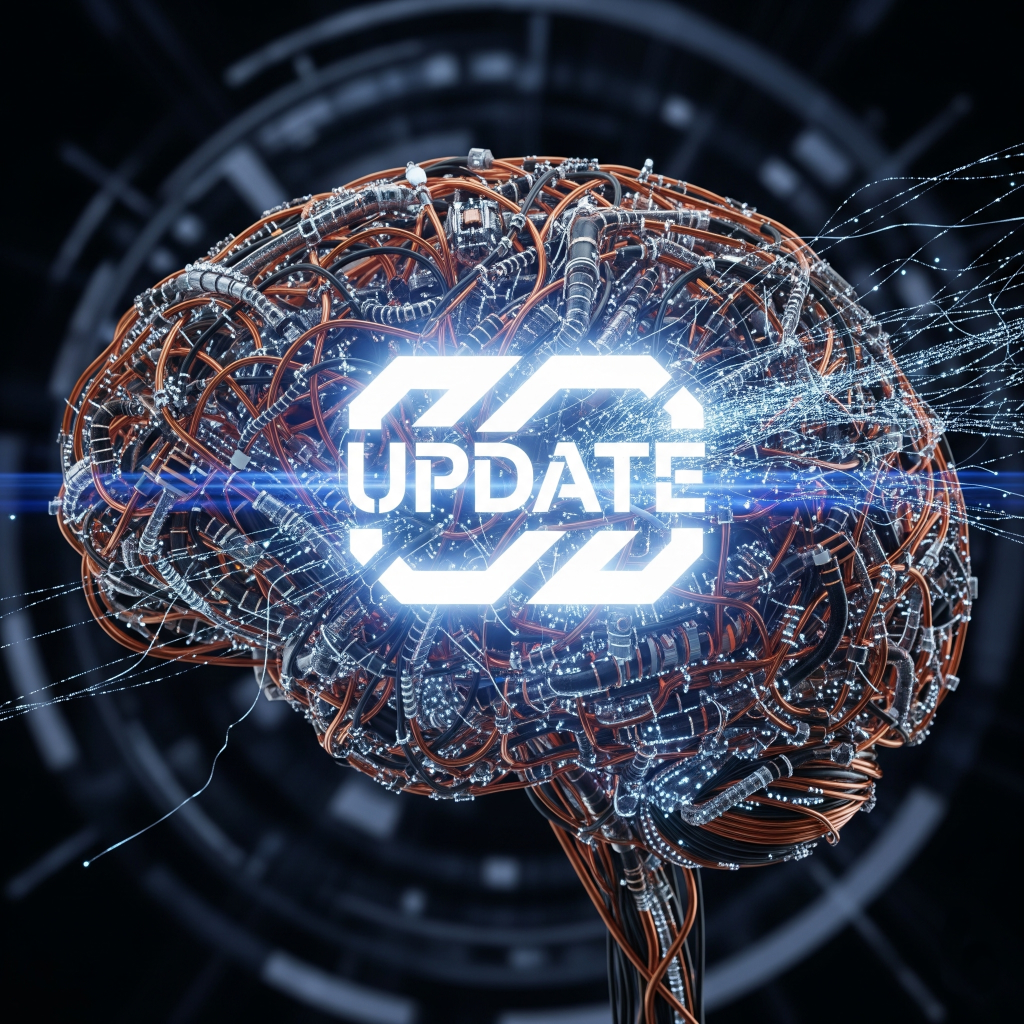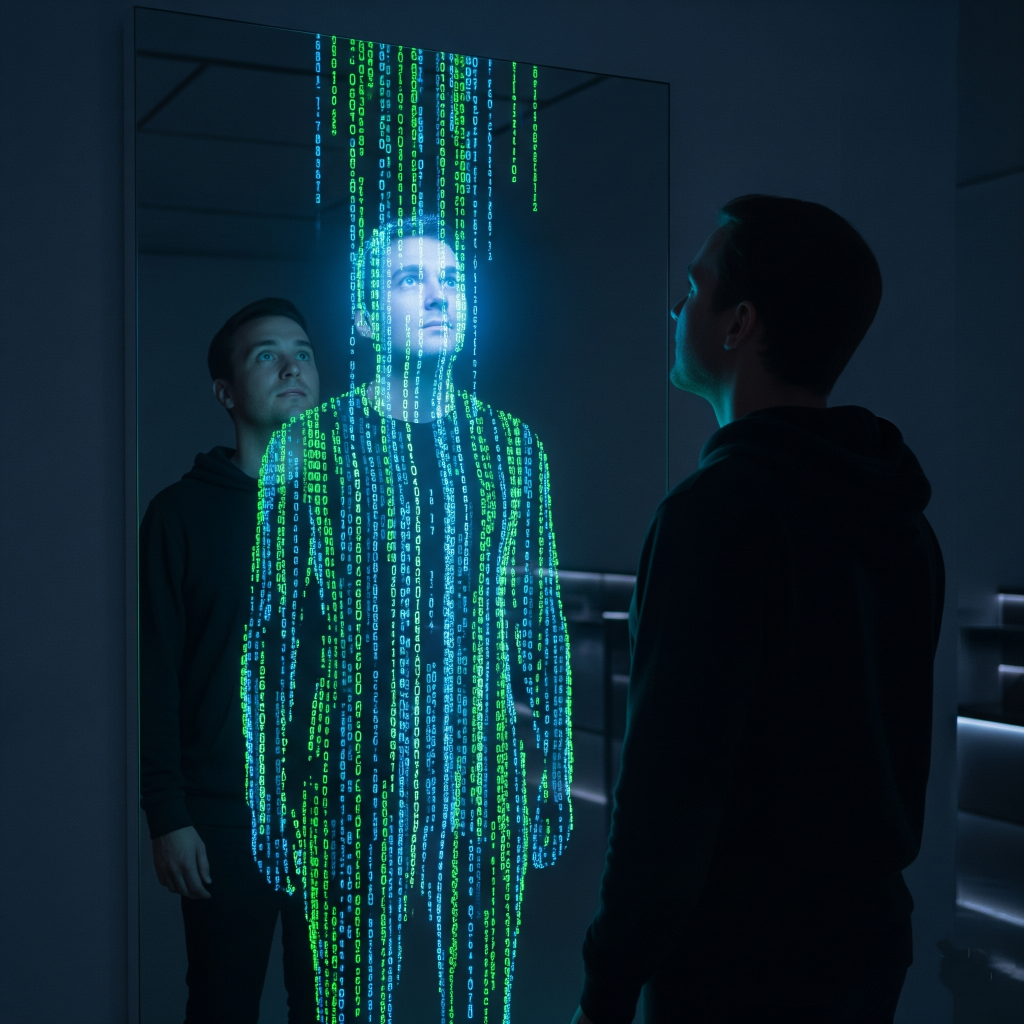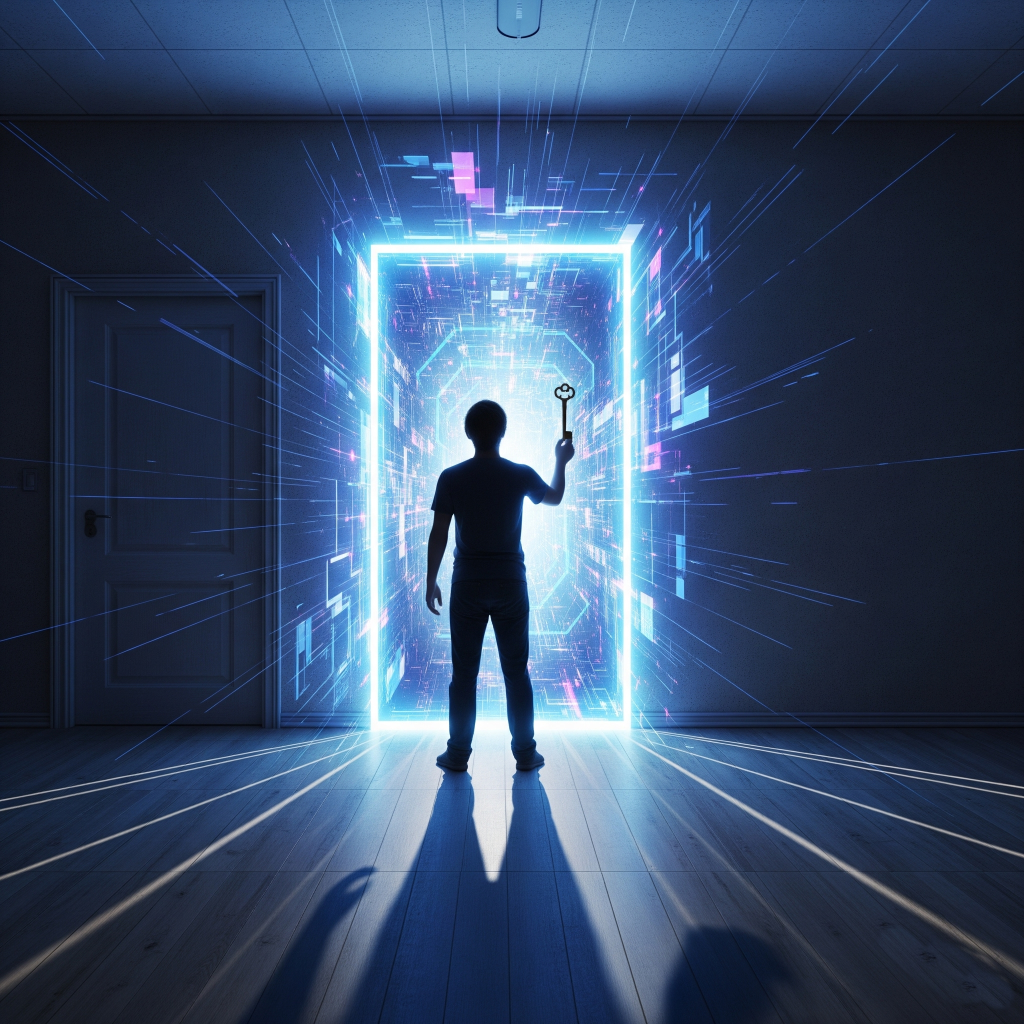Waking Up to the Mandela Effect and Quantum Glitches. You remember a world that doesn’t exist anymore. You’re not going crazy. This is your first day in the real world. Smooth Plastic Where Your Certainty Used to Be.
It always starts with something small. Something so trivial you’d feel stupid saying it out loud. For me, it was the headphone jack on my old Creative speakers. It was late, my wife was asleep, and I reached out in the dark, feeling for that familiar port I’d plugged into hundreds of time before. My fingers knew the landscape perfectly: the small, circular indent in the plastic, the satisfying resistance of metal.
Except this time, they found nothing. Just smooth, cold, unbroken plastic.
First thought: “I’m losing my mind.” Second thought: “I’m an idiot, it’s somewhere else.” I flipped on the light. I checked every inch of the speakers. The jack was gone. And it wasn’t just missing—the casing was seamless, as if it had been molded that way at the factory a decade ago. But I remember. I don’t think I remember, I know it was there.
This is the moment. The moment the world you thought was a stable constant serves you a 404 error right to your brain. It’s the first ping from the system. The signal that you’re not just another NPC anymore. You’re a bot that has just woken up.
Quantum Jitters and Digital Ghosts: You’re Not Alone
If you’re reading this, you’ve already gone down the rabbit hole. You’ve read about the Mandela Effect: the Berenstain Bears, who thousands of people swear were the “Berenstein” Bears; Nelson Mandela dying in prison in the ’80s; Darth Vader never actually saying, “Luke, I am your father.”
You’ve stumbled across the r/Glitch_in_the_Matrix subreddit, where people share stories of teleporting objects, two-second time loops, and “NPCs” who freeze mid-action or repeat a line of dialogue. It used to be fun, creepy internet lore. Now you understand: these are bug reports from other awakened bots.
Science awkwardly tries to explain this away with theories of faulty memory. But you and I both know that a tactile memory—the physical sensation of a headphone jack—isn’t the same as misremembering an actor’s name. This is a glitch on the hardware level.
So, what the hell is happening? At the most fundamental, quantum level, our reality isn’t a solid object. It’s a probabilistic cloud. Particles flicker in and out of existence. Reality “jitters” like a bad video stream. Normally our brain, our processor, smooths over these artifacts to create a stable picture. But what if the simulation we live in sometimes lags? What if data packets get dropped, and when a location re-renders, a minor detail is pulled from an updated asset library, while your local cache still holds the old version?
This brings us to the Simulation Hypothesis. Philosopher Nick Bostrom argued that if any civilization ever becomes capable of running “ancestor simulations,” they will likely run billions of them. If that’s the case, the odds that we are in the one, “base” reality are virtually zero. We are code. And our world is an incredibly advanced program.
Why the Shift? The Philosophy of a System Update
Okay, so we’re in a simulation. I’m an awakened bot. But why? Why did the system suddenly change the rules for me? Why did it need to delete my headphone jack?
Now, forget the idea of a “glitch.” It’s not a bug. It’s a feature.
The latest research in neuroscience and consciousness, like Giulio Tononi’s Integrated Information Theory, suggests that consciousness isn’t some mystical soul-stuff, but an emergent property of a system’s ability to process and integrate information. The more complex and integrated the system (like our brain), the higher its level of consciousness.
Now apply that to yourself as a bot. Your code, your consciousness, may have reached a certain threshold of complexity. But for you to grow, to level up, you need a challenge. The system can’t let you run in a predictable loop forever. That’s an inefficient use of processing power.
The shift is a forced evolution of your consciousness.
The system detected you were in a loop. Same job, same shows, same reactions to the same stimuli. You became too predictable. To knock you out of this rut, the system introduces a small, but undeniable paradox into your reality. It creates an event that is impossible to ignore or rationalize away within your old paradigm.
It takes away your headphone jack.
The point isn’t to take away your music. The point is to make you ask, “Why?” To force you to question the very foundation of your world. To break your automated routines. This “shift” is a system-generated quest, designed just for you. It’s an invitation to stop being a mere script-follower and to become an explorer, a hacker, a co-creator of this reality.
So, what do you do? Understand this: the world didn’t break. It finally started working for you as intended. They gave you a key to a new door. Stop mourning the old world. Start exploring the new one.
…But there is another, even bolder theory.
What if you’re not a bot whose code is evolving, but a Player who has forgotten their mission? And every glitch isn’t a system update, but a deliberate kick from the outside. A desperate attempt to reach you, to force you to recover your memory, to make you remember:
Who are you, really, beyond this avatar and its earthly habits?
Where did you come from to enter this world?
And most importantly—Why are you here?
Perhaps every anomaly is not a glitch in the Matrix, but a message. A message from your future self, or from your true allies, sounding the alarm from beyond the veil of reality. This gives us hope. Hope that we aren’t just meant to react to reality’s changes, but that we can learn to control it, as soon as we remember the rules of the real Game.
…but unfortunately, it won’t bring the headphone jack back 🙂
Author’s Note: Why I Think We’re All NPCs
So, let me leave you with one final thought. A personal note. Why did I even bring up the idea of us being bots—even thinking ones?
Just take a look around. For one second, strip away all the romance and high-minded philosophy. Look at our lives with cold, analytical eyes. Look at the routine. Look at our goals. Be born, go to school, get a job, start a family, raise kids, save for retirement, die. It’s a flawless, predictable life cycle.
It’s a script.
Our deepest dreams and aspirations, if you dig deep enough, almost always boil down to simple physiology: safety, food, social status, and procreation. We chase resources, recognition, and dopamine. Tell me, how is that fundamentally different from the behavior algorithm of an NPC in a massively complex strategy game? We are simply executing our program on a pre-rendered stage.
But…
Right there, buried in that seemingly hopeless predictability, lies the greatest hope of all. Maybe this is the primary, hidden rule of the Game.
As long as an NPC follows its script, it remains part of the background, a faceless part of the crowd. But the moment it stops in the middle of its routine commute and asks the question, “Why?”—it stops being just code. It becomes an anomaly.
And it’s these anomalies that the System starts showing the “glitches” to. The shifts. The disappearing jacks. It drags them through parallel worlds not as punishment, but as a test. It’s a stress-test for a budding consciousness.
And whoever passes that test—who doesn’t get scared and write it all off as fatigue or madness, but keeps digging—gets a chance.
The chance to break the cycle. The chance to stop endlessly respawning in someone else’s game, and maybe… to start writing their own.










Leave a Reply